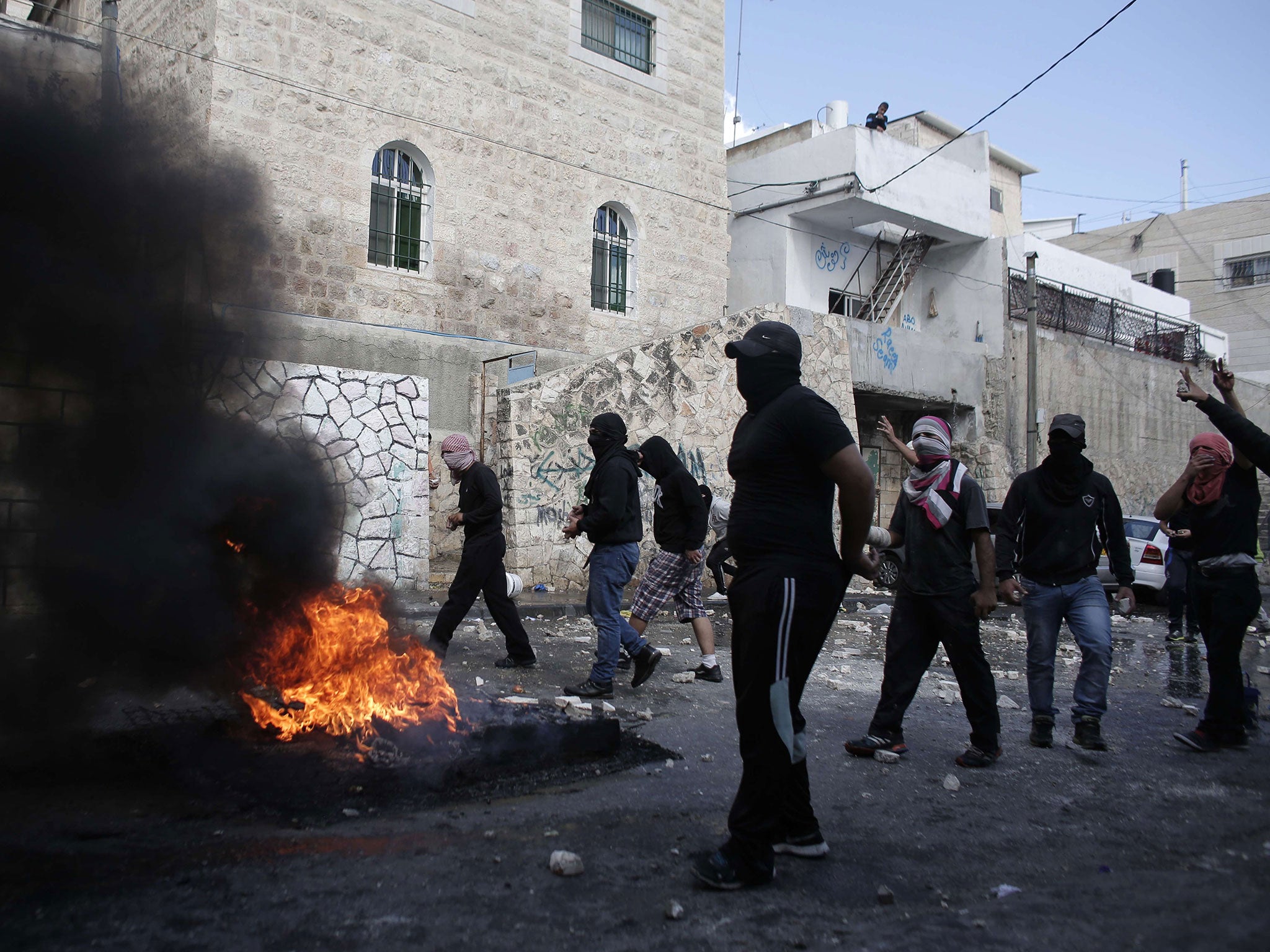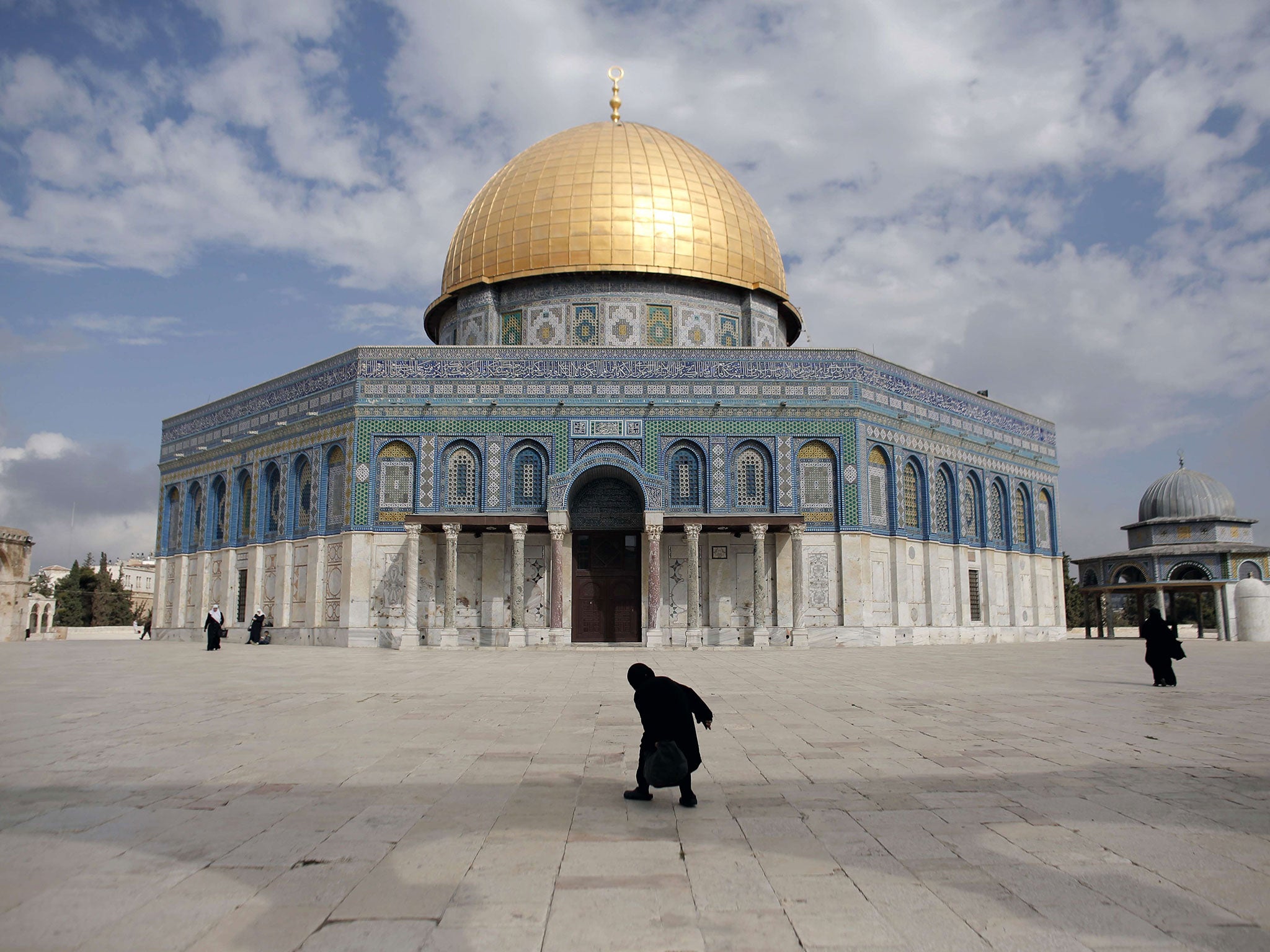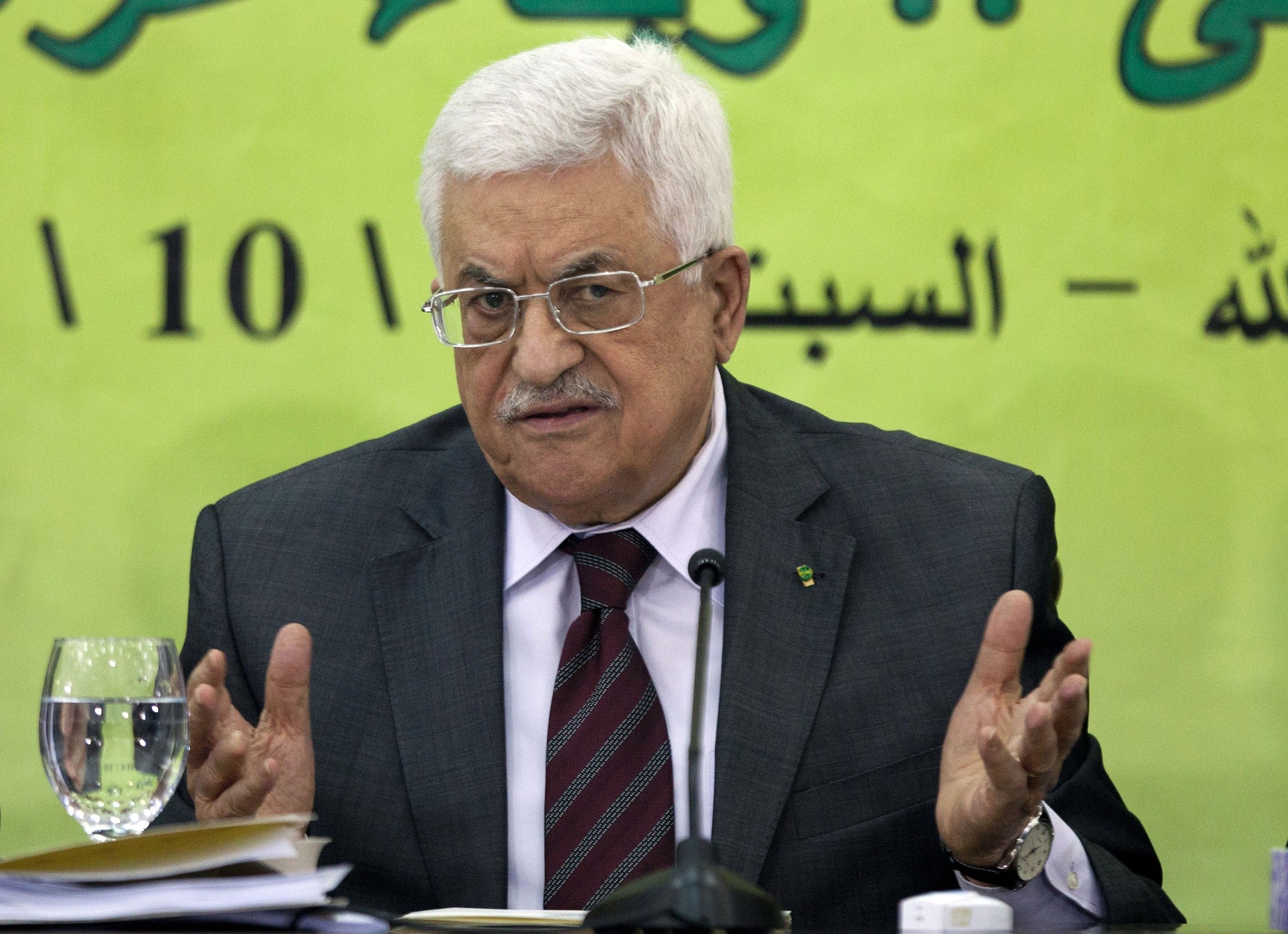Palestinian President Mahmoud Abbas denounces Israel's closure of East Jerusalem mosque as tantamount to 'a declaration of war'
Israeli police shut access to the holy site following the shooting of far-right Jewish activist Yehuda Glick on Wednesday

Your support helps us to tell the story
From reproductive rights to climate change to Big Tech, The Independent is on the ground when the story is developing. Whether it's investigating the financials of Elon Musk's pro-Trump PAC or producing our latest documentary, 'The A Word', which shines a light on the American women fighting for reproductive rights, we know how important it is to parse out the facts from the messaging.
At such a critical moment in US history, we need reporters on the ground. Your donation allows us to keep sending journalists to speak to both sides of the story.
The Independent is trusted by Americans across the entire political spectrum. And unlike many other quality news outlets, we choose not to lock Americans out of our reporting and analysis with paywalls. We believe quality journalism should be available to everyone, paid for by those who can afford it.
Your support makes all the difference.A grave deterioration in Israeli-Palestinian relations is threatening to spin out of control after the Palestinian President, Mahmoud Abbas, accused Israel of making a “declaration of war” by closing al-Aqsa mosque compound to Jews and Muslims alike.
The first closure of the compound in Jerusalem – Islam’s third-holiest site – in 14 years followed the fatal shooting of the 32-year-old Palestinian Moataz Hijazi, who was suspected of attempting to kill a Jewish activist.
Israeli authorities explained the closure of the shrine area, known to Jews as the Temple Mount and revered as the site of two ancient temples, as a necessary security step. But Palestinians viewed the move as further confirmation of their suspicions that Israel was seeking to alter the status quo in the ultra-sensitive area and is endangering the mosque.
“This dangerous Israeli escalation is a declaration of war on the Palestinian people and its sacred places and on the Arab and Islamic nation,” Nabil Abu Rudeina, Mr Abbas’s spokesman, was quoted as saying. “This decision is a dangerous act and blatant challenge that will lead to more tensions and instability.”
The Israeli Prime Minister Benjamin Netanyahu’s spokesman, Mark Regev, responded that Israel was “steadfast that we will not allow any change in the status quo at the site”.
He added: “What we need is not inflammatory rhetoric but responsible leadership to try to calm things down. Israel was compelled to take this step to reduce tension and we hope it will be possible very soon to re-establish calm so that there can be worship in freedom and safety.”

Senior Israeli police officers were deliberating over whether to reopen the site, with restrictions, for today’s mosque prayers. That is looking increasingly likely. But that move alone will not be enough to dissipate tensions in Jerusalem, which were escalating even before the shooting in the chest and stomach of the US-born activist, Yehuda Glick, whose life is still in danger after surgery, according to doctors. Mr Glick campaigned for Jewish prayer at the holy site, which is currently prohibited.
Ever since a Palestinian teenager, Mohammed Abu Khdeir, was brutally murdered in June in a revenge attack for the killing of three Israeli teenagers, there have been nightly clashes between stone-throwing youths and police in Silwan, Isawiya and other neighbourhoods of East Jerusalem. Last week, two Israelis were killed, one of them a three-month-old baby, in a car attack by a Palestinian on pedestrians at a railway station.
Yossi Alpher, former director of the Jaffee Centre for Strategic Studies, said that Mr Glick’s shooting was “an escalatory event that isn’t over”. He added: “The question really is: ‘Can the two sides restrain their extremists or are they not interested in doing so?’ When Abbas declares this is a declaration of war it seems he is not interested in doing so. And Netanyahu is pandering to his own right wing so I’m not sure he has an interest in doing so either.”
Visits by right-wing Israelis to the al-Aqsa compound, growing assertiveness by right-wing Israeli politicians to enact legislation for Jewish prayer on the Temple Mount, and restrictions on access by Palestinian worshippers, layered onto long-standing suspicions that Israel seeks to build the Third Temple on the ruins of al-Aqsa mosque, are all fuelling the Palestinian perception of a threat.

This comes despite Mr Netanyahu’s insistence he will keep the status quo. “The Israeli action against the mosque is the fire which will spread not only in the West Bank but also inside Israel among the Muslims,” says Talal Awkal, a columnist for al-Ayyam newspaper.
Palestinians believe Israel set a precedent for changing the status quo at al-Aqsa, when, after its victory in the 1967 war, it introduced Jewish prayer inside the Tomb of the Patriarchs holy site in Hebron, which is revered by Muslims as the Ibrahimi mosque and had been an exclusively Muslim area for centuries.
At the home of Mr Hijazi, the suspected assailant, relatives voiced understanding for his motives. Police said in a statement that when forces arrived at Mr Hijazi’s house, he opened fire at them and they killed him with return fire.
One resident, an elderly Arab man who declined to be named, described Mr Hijazi as a troublemaker and said “he should have been shot 10 years ago”. Others said he was a good son from a respectable family. “They are good people, he does nothing wrong,” said one young woman.
Today, crowds of young Palestinian men and boys blocked off streets near where Mr Hijazi was killed with rubbish skips and lit fires. They smashed tiles and bricks and used the pieces to throw at Israeli police. Police responded with tear gas, scattering the crowd. Clashes continued for hours.
Taghrid Hijazi, Mr Hijazi’s aunt, said she was surprised that he had carried out the attack since he had recently asked her to help him find a wife. The suspected gunman had served 11 years in an Israeli prison for membership in the radical Islamic Jihad group. A cousin, who asked not to be named, said: “What he did was a natural response to the threat to al-Aqsa. He died defending[it].” Another relative added: “For all Muslim men, women and children, al-Aqsa is part of their credo and they will defend it.”
Join our commenting forum
Join thought-provoking conversations, follow other Independent readers and see their replies
Comments